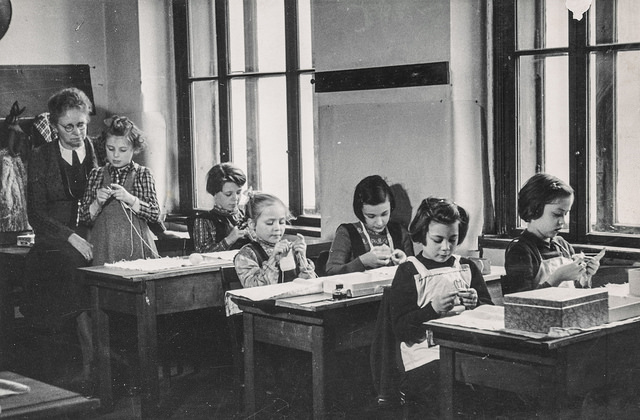Ever wondered who learns the most in a classroom?
The teacher.
Yes, you read it correctly. Russell Ackoff, in his brilliant lecture on “Systems Thinking,” says: “We learn by teaching, not by being taught.”
If we really learn by teaching, are we creating the necessary environment for learning at our schools and our homes? I have tried to address these each of these aspects with a personal perspective.
1. Do we learn by teaching?
The most successful pre-school system in the world is known to be the Montessori method of education. In a Montessori environment, kids of all ages learn together by exploring and sharing. Older kids teach younger ones. There is no set curriculum by age, and ability is not limited to the understanding of a syllabus.
Kids thrive in this environment, but we limit it to play school only so that we can create more efficiency and accountability in higher education.
Where is the accountability in a Montessori environment? Do teachers teach, or do they simply facilitate the learning? Do children compete or do they collaborate?
Let’s imagine the Montessori system in primary school. How would it work? Kids from ages 6 to 12 would learn together in a classroom. Some may work on laptops, and others through clay modeling. The clay models may be animated into a short film, or they may be used in a complex science experiment. Reading would happen instinctively—as a method of communication and bridging gaps. Math would be seen as a challenging problem, waiting to be solved.
Learning would happen on demand, all the time.
The best-known examples of this system are already seen in middle and high schools all around the world. Children move from one specialist class to another, often taken together with kids aged 13 to 16. Their assignments can be on the same topic but graded as per their learning rubrics, which can be age-appropriate but not limited to it. Students collaborate on projects, and teachers collaborate as much as the students.
The more digital our world becomes, the higher our need to learn by teaching. Teachers don’t have all the answers anymore; they also need to look it up: “I don’t know, let’s find out,” is increasingly considered an appropriate response from a middle or high school teacher.
2. Are we creating the right learning environments at our schools?
Administrators at my children’s school have attempted to create this kind of learning environment. Sometimes, these attempts are successful, and other times, they need more adaptation. My kids are lucky enough to go to a school where continuous improvement in this aspect is visible and welcomed by the teachers and parents alike.
I run fitness centers where our clients get trained by a personal trainer at all times. Do our trainers learn by teaching? Absolutely yes. Do we learn by teaching them? Yes—our staff teach and motivate each other, too.
3. Am I creating this learning environment at home?
My kids go to school for only 186 days per year. The remaining 179 days that they spend at home have a huge influence on their learning modalities and aptitude.
Until a few years ago, I didn’t understand the difference between learning by teaching versus being taught. I tried to teach my children so that they could learn. I sat them down with worksheets and digital math sites where they could learn the fundamentals. I made them practice their dance moves, kept reading logs, and researched which books they “should” read. My kids mostly complied, but also occasionally resisted this method. They understood the point of it, but probably never loved it, and rarely wanted to do it. So I stopped many of these activities, or they just fizzled out.
That’s when I decided to explore this concept of learning by teaching.
I encouraged them to teach me their dance moves. They talked me through the steps of learning how to do a pull-up at the gym or play a game of tennis. We read and re-told stories to each other. There was no recommended reading, only story-telling. There was no report writing; rather, we decided to write our own mythological stories. Practice was encouraged but not monitored. Instead, they self-monitored their practices, decided when they felt like painting, and kept track of their TV time and selections. Meals were more fun this way—they were full of discussions. Learning became less regimented and more effective.
Has efficiency suffered? Probably yes. Has skill development suffered? It depends.
My experiences so far tell me that this is not an ideal system if you are a competitive parent and have strong ambitions for the “success” of your child—measured through various milestones. If you are a tiger mum who is focused on a measurable, specific goal for your child in the near future, this method may not work efficiently. You may struggle to clock the 10,000 hours needed to master a specific skill. You may find your child not measuring up to set standards and facing disappointment.
However, if you can separate yourself and your family from this global race and redefine your definition of success to something that looks more like “love what you do,” this formula works. To “love what you do” requires a lot of trust, empathy, patience, and non-judgement as key ingredients. Accepting your child for who they are—and still providing encouragement and positive reinforcement—needs time and an ability to tune in. Internalizing, giving space, and accepting without judging are easier said than practiced.
Do you need to give up all ambition for your child in that case?
No.
Rather, redefine those ambitions (and how to measure success) in a way that your child decides is appropriate. Don’t compare yourself to your children. They are not you, but they can be the best reflection of you—if you allow them to lead their development.
~
Author: Madhuri Kudva
Image: Simpleinsomnia/Flickr; oakenroad/Flickr
Editor: Catherine Monkman
Copy Editor: Lieselle Davidson
Social Editor: Yoli Ramazzina







Read 0 comments and reply